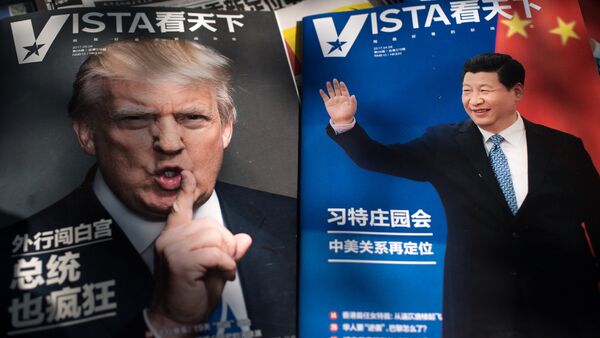Beijing's next step in retaliating against Washington's tariffs could come in the form of unwritten rules applied to US firms operating in China, the Center for Strategic and International Studies (CSIS) warns in its latest report.
According to the think tank, Beijing has adopted about 300 national cybersecurity standards over the last few years. These standards regulate how firms, those mostly involved in software and hardware production, operate on the Chinese market. And although these standards are only deemed "recommended," the fact is if a foreign firm wants to work with government or government-related companies in China, they have to meet these "unwritten" requirements, the report says.
READ MORE: China Strikes Back at US With Tariffs on American Goods — Commerce Ministry
This makes entry into the Chinese market a bit more complicated for all foreign firms as not only are they forced to adapt their products, but must also reveal sensitive data, schematics and parts of source code in order to pass certification. Whilst it is not especially problematic for domestic firms, foreign companies will not willingly share sensitive data about their products, CSIS pointed out.
The report notes that the vague wording in these standards allows Beijing to manipulate them in order to delay and deny certification for US firms, preventing new ones from coming to China and even forcing those who already have a successful business in the country to leave. The CSIS says in its report that these standards may also become a bargaining chip in talks between Beijing and Washington.
READ MORE: Washington Finalizes New Tariffs on $16Bln Worth of Chinese Imports
Samm Sacks, one of the authors of the report, said in an interview with CNBC that China is likely to use its "invisible tool" as a countermeasure against US tariffs. However, she warned that the practice may go beyond the trade war, as Chinese President Xi Jinping's bid to boost the country's cybersecurity power is "much bigger than the dynamic with the US."
Relations between the US and China took a nosedive after Washington adopted a series of tariffs on Chinese goods, citing unfair trade practices by Beijing that have allegedly hurt US trade balances.
READ MORE: Chinese Newspapers Mock Trump's Bravado Over Trade War
On June 15 Trump announced that a 25-percent tariff would be imposed on $50 billion in Chinese goods. Later in July, the US introduced even more duties against $34 billion in Chinese imports. Recently the White House promised to impose additional 25-percent tariffs on $16 billion in Chinese products, starting August 23. Beijing has responded with tit-for-tat measures, such as tariffs on $60 billion worth of US imports, including liquefied natural gas (LNG) and aircraft.


